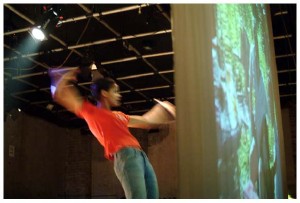
idejaprogramservisengliš |
 |
Human Rights and Democracy Award

For the first time, bbb (together with Open Channel Berlin) organizes the competition for critical and politically engaged film productions from Southeast Europe. The goal ist to support film makers in their strive for independent reporting. Open Channel Berlin (OKB) donates the prices of 500 EUR.
Die Jury/ The Jury:
- Jürgen Linke (OKB)
- Petra Bläss (Parlamentsberatung SEE)
- Sinisa Galic (Regiesseur, Kamera)
- Jana Schwabe (Kamera)
films in competition:
Mami !!!
Statement 710399 - Izjava 710399
Alive – Jetoj
Die Amateure und der General - human rights award
The Children of 1948 - special mention
After the War – Posle rata
Does Anyone Have a Plan - special mention
Motion Report
The Paper will be Blue
Enter the Dragon
Bridging Minds - Brücke der Verständigung
The OKB is a non-profit, local TV-station in Berlin, which give all citizens the possibility of broadcasting, to guarantee a platform for “Freedom of speech”. The Human rights and democracy award by OK-Berlin will be given for films and TV-productions that deal thematically with political and social problems of society. With this price the OKB will support filmmakers and journalists in their participations of democratic process and their critical statements.

Open Channels in Germany
The first Open Channel in Germany started in 1984. Now we have almost 80 of these Channels in different parts of Germany and the number is still increasing.
Open Channels are television and radio accessible to anyone and everyone. Making use of Open Channels is making use of the right of free expression which is part of the German constitution.
Open Channels offer everyday people the opportunity to use a camera and a microphone to improve local communication, to establish dialogue between different social groups, and to be both seen and heard.
Open Channels do not compete with professional television. To do this would contradict the idea behind these Channels.
The equipment available has to be easy to handle and does not reach broadcast quality. The short training Open Channel producers receive cannot be compared with the years of training and experience at professional TV stations. Due to these restrictions Open Channel producers are making more with less. The producer has no choice but to work together with other producers. The production itself mostly establishes the first step to communication.
The restrictions at Open Channels turn out to be the advantages for the producers. One big advantage is that there is no tyranny of ratings.
The Open Channel Producer has more freedom and flexibility. He can afford to make changes and risks even to offend a few people. He does not have to sell the products of the sponsors because there are no sponsors. He does not have to serve a broad audience. He can be strictly local and serve specific interests.
Open Channel programming is unpolished, direct and plain, truthful and rough. It is what the producer wants it to be.
There are certain regulations and rules common to all Open Channels in Germany:
1. Open Channels are first come first served channels. Irrespective of how important a producer or his programme is or is not, everybody is treated equally!
2.The Open Channel staff does not influence the contents of the productions.
3.The staff does not produce the programme. The staff members encourage people to use the Open Channel. They train the producer, support and motivate him.
4.There is no censorship.
5.The producer is legally responsible for the programme he wants to be aired. If he breaks the law he will be prosecuted.
6.All commercial activities are forbidden.
7.Using the technical equipment, the training and assistance are free.
The legislative basis for the Open Channels is to be found in the media laws of different states of the Federal Republic of Germany.
In Germany everybody receiving radio and television has to pay a set fee which is mainly used to finance the two public controlled nationwide TV and radio programmes. A small part of the set fee paid in the state where one or more open Channels exist is used for funding these Channels.
